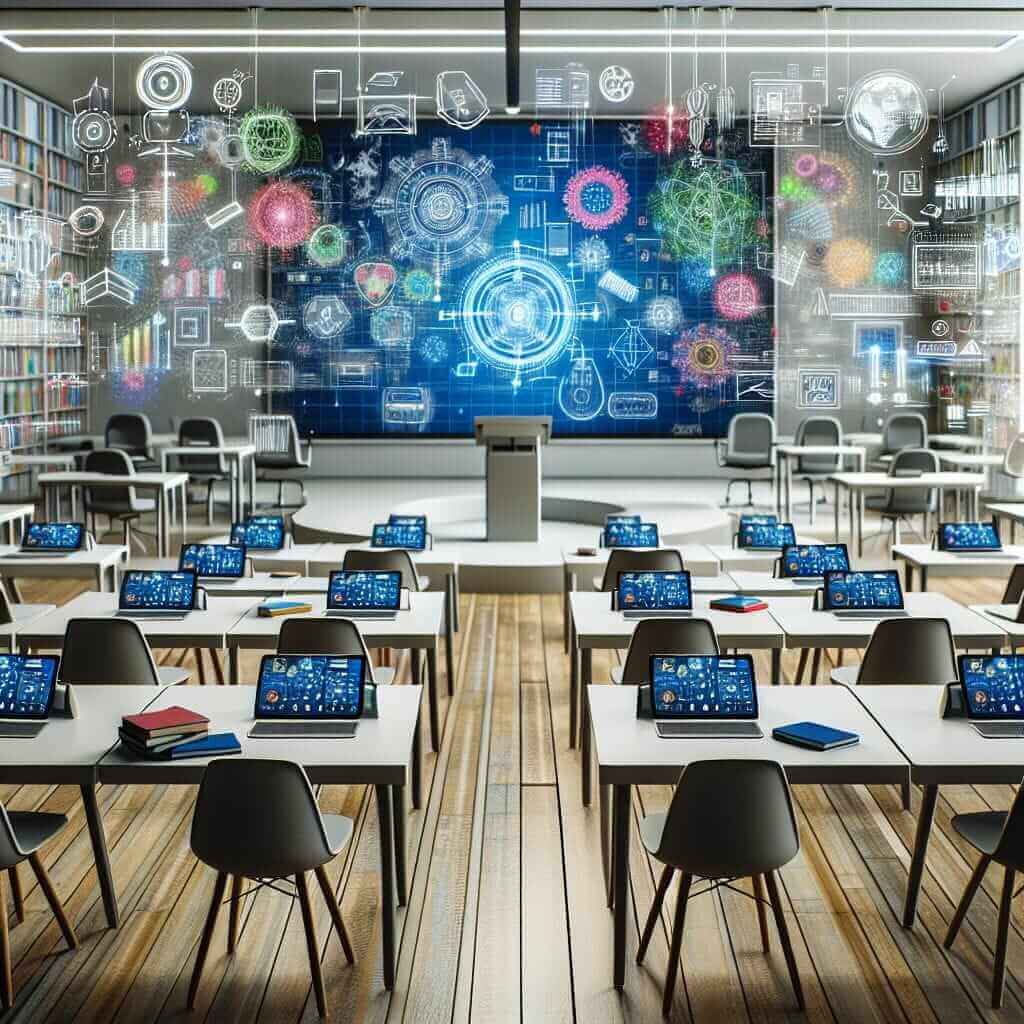The debate surrounding education technology (EdTech) versus the role of teachers is a hot topic in today’s digital age. This debate often manifests in IELTS Writing Task 2, where the question of “Investment in classroom technology vs. teachers” frequently appears. This essay will delve into this complex issue, providing a sample answer, vocabulary analysis, and writing tips for IELTS test-takers.
Sample Essay Question
Some people believe that it is more important to invest in classroom technology, while others think that traditional teaching methods are still superior.
Discuss both views and give your own opinion.
Analysis of the Question
This essay question requires you to discuss both sides of the argument: the benefits of investing in classroom technology and the enduring value of traditional teaching methods. It’s crucial to present a balanced analysis, acknowledging the merits of both perspectives before presenting your own well-supported opinion.
Sample Essay
The integration of technology into education has sparked a debate about the best way to allocate resources: investing in cutting-edge classroom technology or maintaining traditional teaching approaches. While technology offers undeniable advantages, I firmly believe that the irreplaceable role of teachers should remain paramount.
Advocates for technology emphasize its potential to transform learning experiences. Interactive whiteboards, educational apps, and online learning platforms can enhance student engagement, cater to diverse learning styles, and provide access to a wealth of information. For instance, virtual reality can transport students to historical events or inside the human body, creating immersive learning experiences that surpass traditional textbook limitations. Moreover, technology can personalize learning by adapting to individual student needs and pacing, fostering independent learning and critical thinking skills.
However, it is crucial to acknowledge the limitations of technology and the enduring importance of human educators. Technology should complement, not replace, the teacher’s role as a facilitator, mentor, and inspirer. A skilled teacher can identify individual learning needs, provide emotional support, and foster a positive learning environment – aspects that technology alone cannot replicate. Furthermore, overreliance on technology can lead to digital distractions and hinder the development of essential social and communication skills cultivated through face-to-face interactions.
In conclusion, while technology can undoubtedly enhance the educational experience, it should not overshadow the essential role of teachers. A balanced approach that combines effective teaching methods with judicious use of technology is key to creating a holistic and enriching learning environment for future generations.
Word count: 277 words

Writing Tips
- Structure: Follow a clear essay structure (introduction, body paragraphs discussing both sides, conclusion) to ensure coherence.
- Vocabulary: Use a range of vocabulary related to education, technology, and learning to demonstrate language proficiency.
- Grammar and Accuracy: Pay attention to grammar rules, such as subject-verb agreement, tenses, and article usage.
- Examples: Provide specific examples to illustrate your points and support your arguments.
Vocabulary
- EdTech (n.) /ɛdˈtɛk/: Short for “education technology,” referring to the use of technology in education.
- Interactive whiteboard (n.) /ˌɪntərˈæk.tɪv ˈwaɪt.bɔːrd/: A large, touch-sensitive screen used in classrooms for interactive presentations and lessons.
- Virtual reality (n.) /ˌvɜː.tʃu.əl riˈæl.ə.ti/: A computer-generated simulation of a three-dimensional environment, experienced through a headset.
- Personalized learning (n.) /ˈpɜː.sən.əl.aɪzd ˈlɜː.nɪŋ/: An educational approach that tailors learning experiences to individual student needs and preferences.
- Facilitator (n.) /fəˈsɪl.ɪ.teɪ.tər/: Someone who helps a group of people understand their common objectives and work together.
- Mentor (n.) /ˈmen.tɔːr/: An experienced person who advises and guides a less experienced person.
- Digital distractions (n.) /ˈdɪdʒ.ɪ.təl dɪˈstræk.ʃənz/: Things that divert someone’s attention away from their work or studies, often related to electronic devices.
- Holistic (adj.) /hoʊˈlɪs.tɪk/: Characterized by the treatment of the whole person, taking into account mental and social factors, rather than just the physical symptoms of a disease.
- Enriching (adj.) /ɪnˈrɪtʃ.ɪŋ/: Improving or enhancing the quality of something.
Conclusion
The debate surrounding investment in classroom technology versus teachers is complex and multifaceted. IELTS candidates must be prepared to discuss both sides of the argument effectively. By using strong vocabulary, providing clear examples, and following a structured approach, you can craft a compelling essay that showcases your English language proficiency. Remember to practice writing essays on similar topics to enhance your skills and confidence for the IELTS exam.